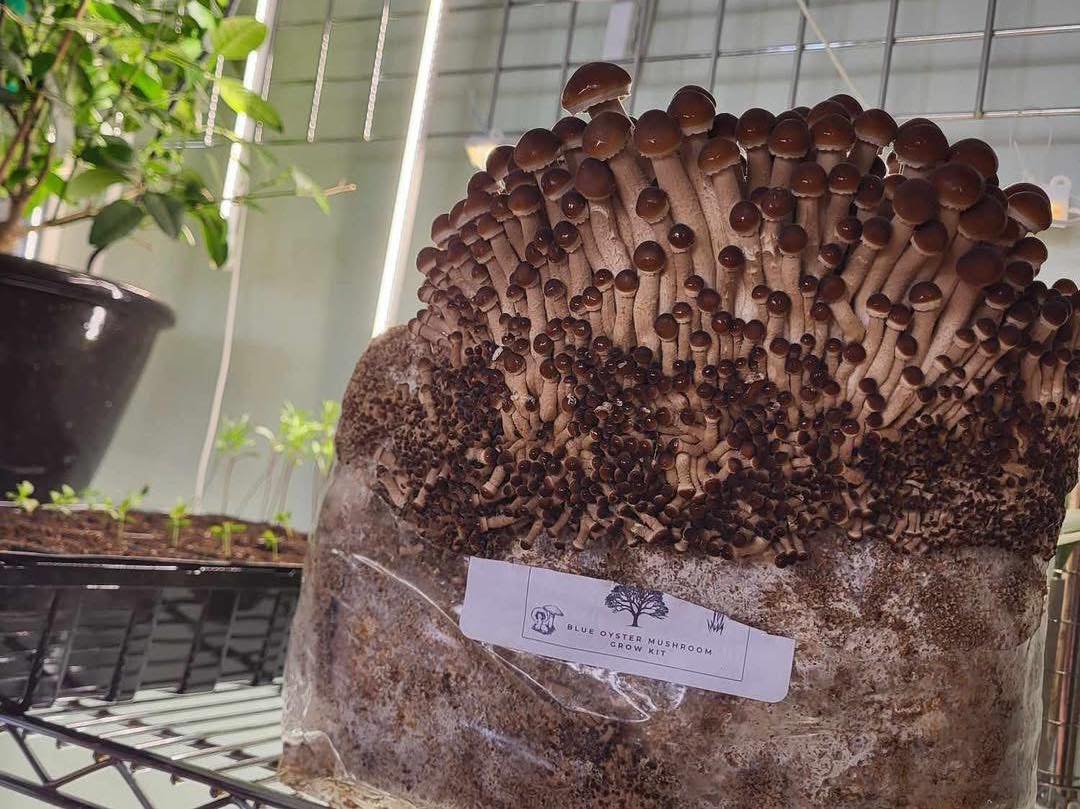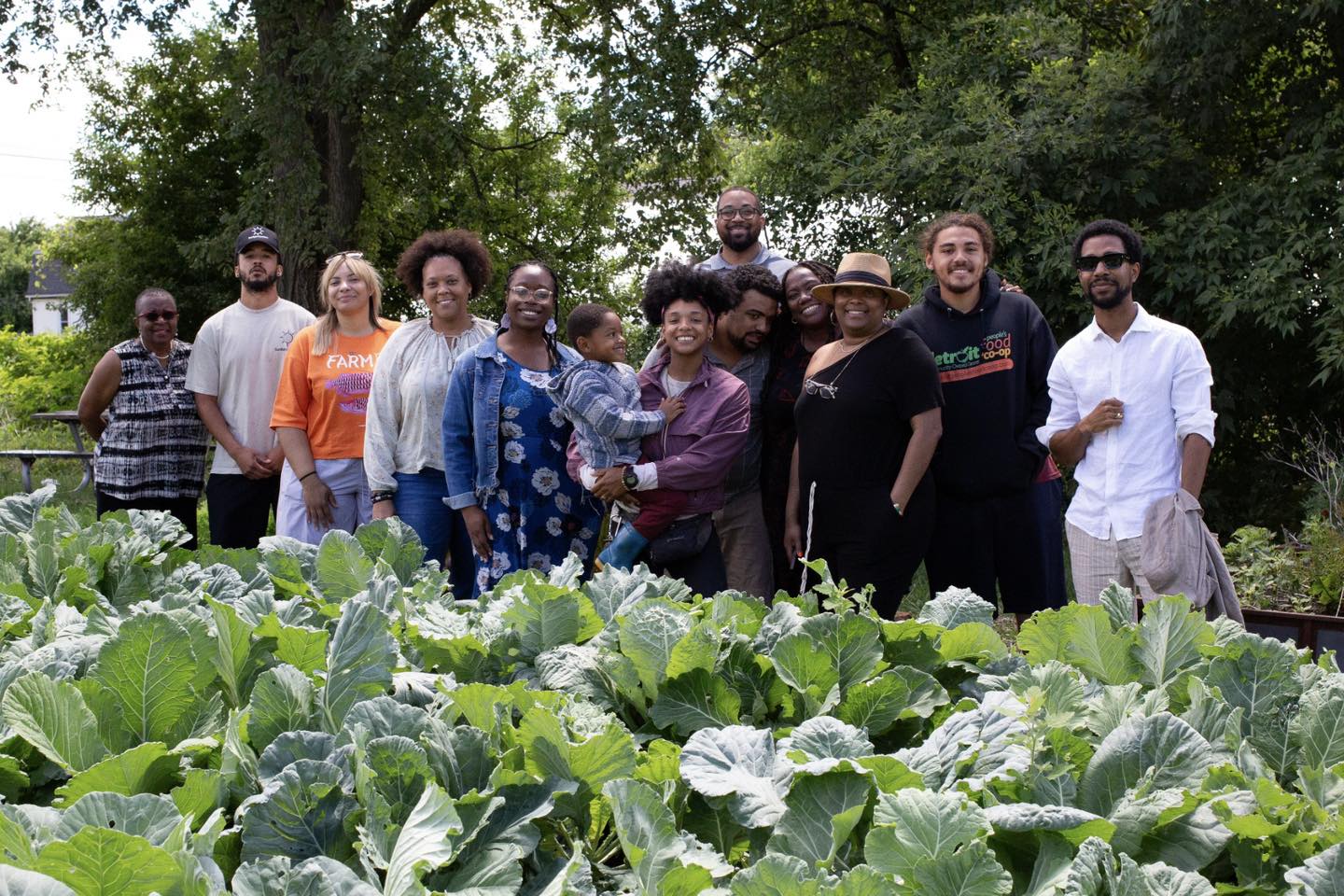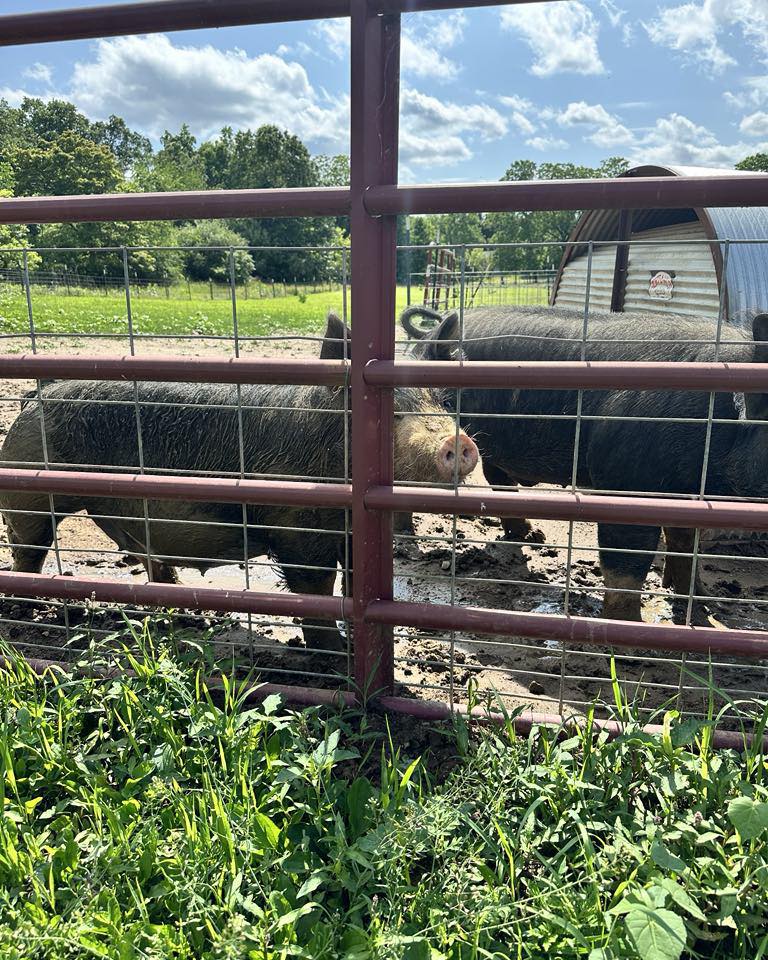Business Spotlight: Agape Organic Farms
Agape Organic Farms, a certified organic pork and mushroom farm based in Dansville, is a food sovereignty champion. With grant writing and network-building support from the Center for Regional Food Systems, Agape scaled its operations and impact.

Shara Trierweiler
Owner of Agape Organic Farms
Dansville, MI

Committed to offering “no bad stuff ever,” Agape Organic Farms is a certified organic, Black woman-owned farm, specializing in pasture-raised Berkshire pork and cultivated mushrooms. Trierweiler sells multiple types of sausages, bacon, and steaks, as well as 28 varieties of mushrooms and mushroom grow kits. Trierweiler and her family are on a mission to grow quality food while being good stewards of their land and animals.
On top of nourishing the soil and her community, Trierweiler is one of the 30 members of the Michigan Food Sovereignty Collaborative Network. This committee brings agricultural leaders together to advance advocacy and policy changes across the state, with an emphasis on increasing the diversity of Michigan’s food systems by removing barriers to success for underserved producers. This network was originally started as a think tank by Michigan State University Center for Regional Food Systems (CRFS) through funding from the W.K. Kellogg Foundation.

“I do want to be a bridge builder, and to do my part in not just building the bridge, but strengthening it, so that no one else can break it down.” Shara Trierweiler
Additionally, Trierweiler mentors other Black farmers in their operations. This includes helping them navigate the notoriously time and labor-intensive transition to organic practices and eventual certification. To make this certification more accessible for small-scale, diversified, urban farmers, she was part of the efforts to create a newly minted cooperative option which streamlines the process by reducing the logistics and mandatory reporting. Similarly, she worked with a network of committees to close loopholes in livestock certification so that it is more difficult for large commercial producers to get exceptions.

Like many farms and food businesses, she has applied for a myriad of funding opportunities at the local, state, and federal level to continue growing her farm and her impact. In 2024, Trierweiler applied for more than 30 grants, and unfortunately, was selected for none of them. However, after working with specialists at CRFS on her applications for additional grants, she was awarded $16,000 to improve the resiliency of her business.
“That was miraculous,” Trierweiler said.
Coupled with the grant writing support, she also received motivation to keep going. “There were times when I started to doubt myself a lot. Jamie [Rahrig] would give me assurances saying, ‘hey, you know you're doing this and you're doing great,’ and was very, very helpful.”
Dedicated to Farm and Food Business Development
Michigan State University Center for Regional Food Systems provides food and agriculture entrepreneurs with accessible business assistance, such as business planning support, financial readiness education, and connections across the value chain. Through helping the individuals who make up the local and regional food systems, their businesses are able to sustain themselves, create good jobs, and increase access to food in their communities.
Connect with us at foodsystems.msu.edu or crfs@msu.edu



 Print
Print Email
Email


